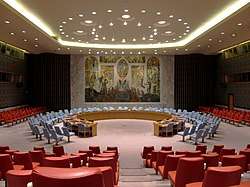Youth Economic Activities in Developing Countries List

Developing Countries
The Developing Countries list has many African countries on the number. Young people in developing countries are a valuable resource. They are often energetic, innovative, and eager to work. With the right support, they can play a major role in the economic development of their countries.
Here are the top 10 developing countries with the largest youth populations:
- India
- Nigeria
- China
- Indonesia
- Pakistan
- United States
- Bangladesh
- Democratic Republic of the Congo
- Mexico
- Ethiopia
These countries have a large number of young people who are entering the workforce. This has a significant impact on the economic activity of these countries. Young people are more likely to be entrepreneurs and to start new businesses. They are also more likely to be employed in the informal sector.
The following are some of the factors that influence youth economic activities in developing countries:
- Education: Education is a key factor in determining the economic opportunities available to young people. A good education can help young people get better jobs and earn higher incomes.
- Employment opportunities: The availability of employment opportunities is another important factor. In countries with high unemployment rates, young people may have difficulty finding jobs. This can lead to frustration and social unrest.
- Access to capital: Access to capital is also important for young entrepreneurs. Without access to capital, it can be difficult to start a new business.
- Government policies: Government policies can also have a significant impact on youth economic activities. Policies that support entrepreneurship and small businesses can help to create more jobs and opportunities for young people.
The following are some of the challenges that young people face in developing countries when it comes to economic activities:
- High unemployment rates: Unemployment is a major problem for young people in developing countries. In some countries, the unemployment rate for young people can be as high as 50%.
- Low wages: Even when young people are able to find jobs, the wages are often very low. This can make it difficult to make ends meet and to save for the future.
- Limited opportunities: There are often limited opportunities for young people in developing countries. This can be due to a lack of education, a lack of employment opportunities, or a lack of access to capital.
Despite the challenges, young people in developing countries are a valuable resource. They are often energetic, innovative, and eager to work. With the right support, they can play a major role in the economic development of their countries.
How Does The developing countries list influences African Youth in economic activities?
The developing countries list influences African youth in economic activities in a number of ways.
- Education: The availability of quality education is essential for young people to develop the skills and knowledge they need to participate in the workforce. In many developing countries, however, access to education is limited, especially for girls and young people from rural areas. This lack of education can make it difficult for young people to find jobs and earn a living.
- Employment opportunities: The availability of employment opportunities is another important factor in determining the economic opportunities available to young people. In countries with high unemployment rates, young people may have difficulty finding jobs. This can lead to frustration and social unrest.
- Access to capital: Access to capital is also important for young entrepreneurs. Without access to capital, it can be difficult to start a new business. In many developing countries, there is limited access to credit for small businesses. This can make it difficult for young people to start their own businesses and create jobs.
- Government policies: Government policies can also have a significant impact on youth economic activities. Policies that support entrepreneurship and small businesses can help to create more jobs and opportunities for young people. In many developing countries, however, government policies are not supportive of entrepreneurship. This can make it difficult for young people to start their own businesses.
In addition to these factors, the developing countries list also influences African youth in economic activities through the following:
- Migration: Many young people in developing countries migrate to other countries in search of better economic opportunities. This can have a significant impact on the economies of the countries they leave behind.
- Technology: The development of new technologies is also having a major impact on the economic opportunities available to young people in developing countries. New technologies can create new jobs and opportunities, but they can also displace workers in traditional industries.
- Climate change: Climate change is also having a major impact on the economies of developing countries. In some cases, climate change is leading to crop failures and other disruptions that can make it difficult for young people to find jobs and earn a living.
Despite the challenges, young people in developing countries are a valuable resource. They are often energetic, innovative, and eager to work. With the right support, they can play a major role in the economic development of their countries.
How Do European and American Youth Look For Opportunities in the developing countries list?
European and American youth look for opportunities in developing countries in a variety of ways. Some common methods include:
- Volunteering: There are many organizations that offer volunteer opportunities in developing countries. This can be a great way to gain experience and make a difference in the world.
- Internships: Internships can also be a great way to gain experience and make connections in developing countries. Many companies offer internships in developing countries as part of their corporate social responsibility initiatives.
- Teaching: Teaching is another popular option for young people who want to work in developing countries. There are many organizations that recruit teachers to work in developing countries.
- Business: Some young people start their own businesses in developing countries. This can be a great way to make a living and make a difference in the world.
When looking for opportunities in developing countries, it is important to do your research and find an organization or company that is a good fit for you. You should also be aware of the risks involved in working in a developing country. However, if you are willing to put in the effort, there are many opportunities for young people to make a difference in developing countries.
Here are some specific examples of organizations that offer opportunities for European and American youth to work in developing countries:
-
- Peace Corps: The Peace Corps is a US government agency that sends volunteers to work in developing countries. Volunteers work in a variety of fields, including education, health, and agriculture.
-
- Volunteer Match: VolunteerMatch is a website that connects volunteers with organizations that need help. There are many organizations on VolunteerMatch that work in developing countries.
-
- Intern Abroad: Intern Abroad is an organization that helps students and young professionals find internships in developing countries.
-
- Teach for America: Teach for America is a US organization that recruits recent college graduates to teach in low-income schools.
-
- Americorps: AmeriCorps is a US government program that provides opportunities for young people to serve their communities. There are many AmeriCorps programs that work in developing countries.
Youth Involvement in Economic Activities of Developing Countries
Youth are a vital part of the workforce in developing countries. They make up a large proportion of the population, and their energy and dynamism can be a powerful force for economic growth.
There are many ways that youth can contribute to the economic activities of developing countries. They can:
- Start their own businesses. Youth entrepreneurship is a key driver of economic growth, and it can help to create jobs and boost innovation.
- Work in existing businesses. Youth can bring new ideas and energy to existing businesses, and they can help to fill the skills gap in many developing countries.
- Volunteer their time and skills. Youth can volunteer their time and skills to help build up their communities, which can lead to improved social and economic development.
- Get involved in government and policy making. Youth can use their voice to advocate for policies that will benefit them and their communities.
The United Nations has recognized the importance of youth participation in development, and it has set a number of goals to promote youth employment and entrepreneurship. These goals include:
- By 2030, substantially increase the number of youth and adults who have relevant skills, including technical and vocational skills, for employment, decent jobs and entrepreneurship.
- By 2030, eliminate all forms of forced labor, end modern slavery and human trafficking and secure the prohibition and elimination of the worst forms of child labor, including recruitment and use of child soldiers, and by 2025 end child labor in all its forms.
- By 2030, substantially reduce youth unemployment and ensure that all young people have relevant skills for employment, decent work and entrepreneurship.
There are a number of challenges that youth face in their efforts to participate in economic activities in developing countries. These challenges include:
- Lack of access to education and training. Many young people in developing countries do not have access to quality education and training, which limits their opportunities for employment.
- Lack of access to finance. Young entrepreneurs often have difficulty accessing the finance they need to start and grow their businesses.
- Discrimination. Young women and girls often face discrimination in the labor market, which limits their opportunities for employment and entrepreneurship.
- Social and cultural norms. In some cultures, there are social and cultural norms that discourage youth from participating in economic activities.
Despite these challenges, youth can play a significant role in the economic development of developing countries. By providing them with the right opportunities and support, we can help them to reach their full potential and contribute to a more prosperous future for all.
Here are some specific examples of how youth are contributing to the economic activities of developing countries:
- In Kenya, a group of young entrepreneurs have started a social enterprise that provides affordable solar power to rural communities.
- In India, a youth-led organization is working to improve the lives of street children by providing them with education, training, and job opportunities.
- In Nigeria, a young woman has developed a mobile app that helps farmers to sell their produce directly to consumers.
These are just a few examples of the many ways that youth are making a difference in the developing world. By supporting youth participation in economic activities, we can help to create a more sustainable and equitable future for all.
Conclusion
These are just a few examples of the many organizations that offer opportunities for European and American youth to work in developing countries. If you are interested in working in a developing country, I encourage you to do your research and find an organization that is a good fit for you.

1 thought on “Top 10 Developing Countries List Influences Youth Economic Activities”